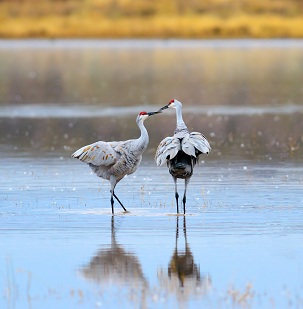Cracking the sex role reversal mystery

The project team studied how the availability of potential mates, as estimated by adult sex ratio of the populations (ASR), influences the role of males and females in parental care and in the competition for partners. ASR is considered important because members of the more rare sex have better opportunities for attracting a mate, and should thus be more interested in courtship and less interested in parental activities than members of the more common sex.
The researchers tested this idea in shorebirds, and showed that conventional sex roles, such as male mating competition and female care of offspring, occur in species with female-biased ASR. Male-biased ASR is associated with sex-role reversal, such as female mating competition and male care of offspring.
The team also showed that the 'divorce' rate is higher in species with female-biased sex ratio, indicating that mate change is more frequent when females outnumber males. Furthermore, infidelity increases with male-biased ASR, suggesting that male coercion and female willingness to change partner are facilitated by male-biased ASR.
“Our research on the shorebirds has revealed the potential societal consequences of imbalanced sex ratios for humans,” says Robert Freckleton, project coordinator and Director of Research and Innovation at the Faculty of Science at the University of Sheffield in the United Kingdom. “These include a higher rate of ‘divorce’, more frequent partner changes and a higher rate of infidelity - although more investigation is needed to back up this theory,” he adds.
An added aspect of the project was its Marie Curie fellowship, an EU research grant which combined a diverse set of experiences to further the career development of Dr. András Liker.
“Working within an excellent research environment and collaborating with internationally leading experts in the field provided important and long-term benefits for my research potential, scientific thinking and knowledge of cutting-edge methodologies,” says Liker.
“These new skills and knowledge can be transferred to the fellow's research environment in his home country of Hungary, which is also a key aim of the programme,” adds Freckleton.
One of the main benefits of the project was the establishment of a number of new international collaborations, which are expected to build on the work undertaken during SEXUAL SELECTION.
“We are currently examining whether sex ratio has a similar relationship in reproductive behaviour for mammals together with the German Primate Centre. In another study, with Dr Vladimir Remes at Palacký University in Czech Republic and Dr Alejandro Gonzales-Voyer at Estación Biológica de Doñana in Spain, we are analysing how the environment influences sex roles,” comments Freckleton.
